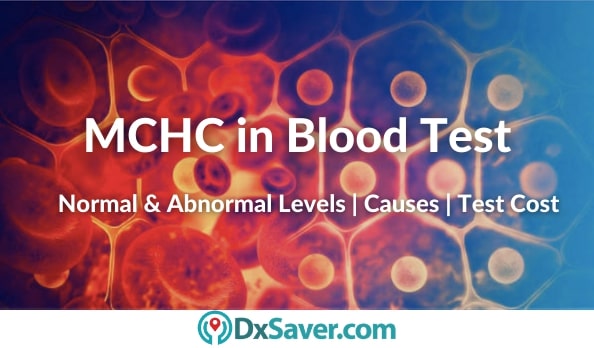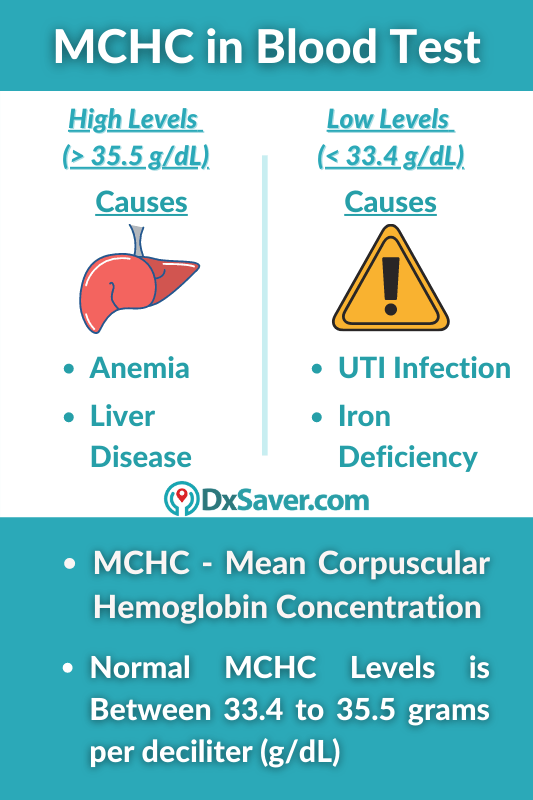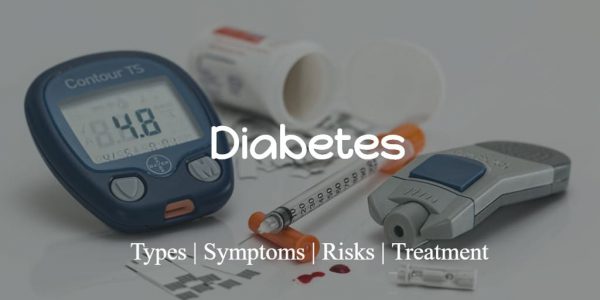
MCHC expands as Mean Corpuscular Hemoglobin Concentration. MCHC test is often a part of the Complete Blood Count test (CBC) that is taken as an annual blood checkup or prescribed by your physician to diagnose blood-related disorders like anemia. MCHC values are helpful in determining the cause and severity of anemia that a patient is currently undergoing.
Hemoglobin is a protein like content in the human blood cells. The primary job of hemoglobin is to circulate oxygen throughout the human anatomy. Low hemoglobin content may result in a lack of oxygen and result in tiredness and other anemia symptoms.
MCHC levels is taken to determine the cause of anemia. However, the condition will not be concluded on the result of low MCHC alone, the MCHC levels are also compared to other blood measuring components such as RBC, WBC, MCH & a few more that also come along with the CBC test results.
- MCHC Blood Test Cost
- What is the MCHC in the Blood Test?
- What is MCHC & Why is it Important?
- How is the CBC (MCHC included) test performed?
- Is there any Preparation Required before the Test?
- Are there any risks in the CBC test?
- What does the MCHC Test Result Mean?
- MCHC Blood test high
- MCHC Blood test low
- How to improve low MCHC levels in blood?
- How to reduce high MCHC levels in blood?
- Providers Locations
For our readers, who are very much interested in knowing the MCHC Blood test cost beforehand, we would like to begin with that section.
MCHC Blood Test Cost
The MCHC test is not taken individually. MCHC levels are known from the Complete Blood Count (CBC) Test, which is a panel of tests that also measures WBC, RBC, Platelets, Hemoglobin & a few other blood cell components.
The cost of the CBC test ranges between $28 and $39 in different labs and facilities across the U.S. No prior appointment is required. Compare the price, order your test online and visit the nearest lab during lab business hours. Complete the procedure and get the results in your email in 2 to 3 business days. Doctor consultation is also available for further treatment or for any kind of medical advice.
The following table shows the Complete Blood Count (CBC) test cost at our selected partner that has over 4500 laboratories (CLIA – Certified) network located across the U.S.
Name of our Partner Lab | Book Online |
HealthLabs
| Offer Price$28 |
Cost of CBC test cost with insurance
Many health insurance policies in the U.S. cover the cost of the complete blood count test when it is done once or twice a year. If your physician recommends you to take the Complete Blood Count test more than twice in a year, you may have to pay the medical bill out of pocket. Also, the coverage offered by private health insurance policies and national health insurance programs varies widely. So we recommend you to check with your insurance company.
Our CBC testing providers do not accept any health insurance. But, on request, they can provide you with a receipt containing all the details like the name and code of the test, and CPT code which is necessary for insurance reimbursement purposes.
What is MCHC in a Blood Test?
Mean Corpuscular Hemoglobin Concentration, which is commonly known as MCHC indicates the average concentration of hemoglobin content in your red blood cells. Your MCHC levels can fluctuate due to various factors, particularly due to anemic diseases.
Hemoglobin is a vital part of the blood cells. Without hemoglobin, the oxygen from the lungs cannot be circulated throughout the body. Thus, less hemoglobin content may result in lower oxygen circulation in the blood.
Generally, the MCHC blood test is ordered as part of the Complete Blood Count (CBC) panel. The CBC test is prescribed in the following conditions:
- Require a complete physical screen to evaluate your overall health
- CBC test helps ins aiding and diagnosing various diseases
- To monitor a condition once you’ve been diagnosed
- To assess the effectiveness of an ongoing medical treatment
This CBC test panel indicates the healthiness of three types of cells in your body, including WBC (White Blood Cells), RBC (Red Blood Cells), and Platelets count. Your MCHC levels comes under Red Blood Cells analysis.
What is MCHC & Why is it Important?
Hemoglobin in red blood cells is made up of iron content. Hemoglobin are rich in iron, also plays a major role in carrying oxygen to every other part of your body. MCHC levels are a measurement of the average count of hemoglobin inside of a single red blood cell in your blood specimen. A healthy adult should have 31-37 grams per deciliter (g/dL) of MCHC in their blood.
MCHC levels can fluctuate as per your health condition. You can have high MCHC values if there’s an increased concentration of hemoglobin inside of your RBCs. On the other hand, your results can show low MCHC levels, if your red blood cells do not have adequate hemoglobin.
How is the CBC test performed?
As the name suggests, the Complete Blood Count (CBC) test is a simple blood test. During this test, a lab technician or a phlebotomist will cleanse the skin with an antiseptic and place an elastic band around the upper arm so that the vein becomes visible and swells with blood. He/she then injects a needle and draws a sample of blood in a test tube. After the blood is drawn, he covers the injected area with a band-aid to stop bleeding. The typical blood specimen is then sent to the lab for analysis.
It takes less than 10 minutes to perform this test.
Is there any preparation required before the test?
There is no special preparation required for the Complete Blood Count test. But if the blood sample is going to be used for other tests, you may have to fast for a certain period. Your concerned physician will give you specific instructions on diet.
Are there any risks in the CBC test?
There is no possible risk or complication in taking the CBC test. You might have slight pain or bruise in the injected area for a very little period.
What does MCHC Blood Test Result Mean?
MCHC in your blood test results indicates the Mean Corpuscular Hemoglobin Concentration, which is how much hemoglobin concentration is present in your blood on average. Usually, normal levels of MCHC in a grown adult should stand between 33.4–35.5 grams per deciliter (g/dL).
The MCHC levels are computed by multiplying the hemoglobin result from your CBC panel by 100 and then dividing by the hematocrit values in the same CBC test result.
If your CBC test results show MCHC levels less than 33.4 g/dL, you have low MCHC count. If your MCHC levels is more than 35.5 g/dL, you have high MCHC levels.
MCHC Blood Test High
If your test results show MCHC values at or more than 35.5 grams per deciliter, then your MCHC values are elevated. There are various reasons for having high MCHC. Most often, it can be a result of red blood cell destruction or fragility where hemoglobin will be present outside the red blood cells, resulting in high MCHC.
Causes of high MCHC include:
1. Autoimmune hemolytic anemia: Autoimmune disorders are medical conditions where the body’s own immune system attacks mistakenly its own red blood cells, causing high MCHC levels.
2. Hereditary spherocytosis: A situation where the red blood cells’ fragility is inherited as a genetic mutation from their parents.
3. Medications: Sometimes, your MCHC levels can be elevated due to the consumption of chemotherapy drugs.
4. Macrocytic anemia: In this type of anemia, the RBCs’ size are much larger than normal, leading to high MCHC levels. Macrocytic anemia can be caused due to Vitamin B-12 deficiency.
5. Liver disease: The liver is an important organ in secreting enzymes that your body requires for proper functioning. Live also acts as a warehouse for storing and processing the hemoglobin. Thus, it is common in people having a liver disease to exhibit some form of anemia. If your liver is damaged or if you’re undergoing any liver treatment, you may have high MCHC.
6. Overactive thyroid: Thyroid issues may influence your red blood cells, resulting in a high MCHC.
Symptoms of High MCHC in Blood
High MCHC can be due to various health problems, following are some of the health conditions causing high MCHC levels in your blood.
If you have autoimmune hemolytic anemia, and a high MCHC, you will be experiencing the following symptoms:
- Abdominal discomfort
- Enlarged spleen
- Fainting
- Fatigue
- Rapid heartbeat
- Jaundice
- Paleness
- Weakness
If you have macrocytic anemia, and a high MCHC, you will be experiencing the following symptoms:
- Brittle hair and nails
- Diarrhea
- Loss of appetite
- Memory problems
- Trouble concentrating
- Weight loss
If you have liver disease, and a high MCHC due to anemia, you will be experiencing the following symptoms:
- Nausea
- Vomiting
- Upper right abdominal pain
If you have an overactive thyroid, and a high MCHC, you will be experiencing the following symptoms:
- Excess hunger
- Fatigue
- Sweating
- Palpitations
- Restlessness
- Weakness
- Weight loss

MCHC Blood Test Low
If your test results show MCHC levels less than 33.4 grams per deciliter, then you have low MCHC levels. Lack of MCHC can occur if you have anemia due to iron deficiency. Low MCHC levels can also be due to an inherited blood disorder called thalassemia, where you have fewer red blood cells and less hemoglobin present in your body. Following are some of the other causes and symptoms of low MCHC levels.
Causes of Low MCHC in Blood
Low MCHC is often tied up with anemic conditions characterized by low hemoglobin content. It can be a result of normal conditions like pregnancy, or by having an iron-deficient diet. In rare cases, it may be caused by cancer, which can be life-threatening.
Following are some of the major anemic types associated with a low hemoglobin concentration:
1. Iron deficiency anemia: An anemic condition where the body is short of iron or inefficient in absorbing iron content.
2. Pernicious anemia: This is caused by deficient in vitamin B-12, or inability to absorb vitamin B-12.
3. Aplastic anemia: A condition where there is a reduced number of blood components including, red blood cells, white blood cells, and platelets.
4. Hemolytic anemia: This happens when red blood cells are destroyed before the end of their lifespan and are not replaced/produced quickly.
Other than anemia, other conditions like medical treatment like chemotherapy and following conditions can influence the production of new red blood cells (or destroy red blood cells faster than they can be made), resulting in anemia.
- Enlarged spleen
- Hemolysis
- Porphyria
- Thalassemia
- Urinary tract infection (UTI)
- Vasculitis
Low MCHC levels can also be due to blood loss due to injury, ulcers or cancers. This also includes regular events, such as frequent blood donation and menstruation.
Symptoms of Low MCHC in Blood
Low MCHC levels are seen if you have anemia. Thus, symptoms of anemic diseases include:
- Cold hands or feet
- Chest pain
- Dizziness or headache
- Easily bruised
- Fast or irregular heartbeat
- Loss of stamina
- Lack of concentration
- Shortness of breath
- Pale skin and gums
- Weakness/fatigue
Generally, anemia is caused by various factors. The very first step in diagnosing and prescribing the treatment method is to identify the type of anemia and its severity. An MCHC blood test comes helpful in evaluating this and proceed in the right direction.
Slightly depleted MCHC levels do not exhibit any noticeable symptoms or illness. Sometimes, people find they have low MCHC levels and hemoglobin only after taking a routine blood screening.
How to improve low MCHC levels in blood?
After analyzing the cause of low MCHC levels, either anemia or other health conditions, your physician may recommend treatment according to your case. However, the most common reason for low MCHC is iron deficiency anemia. To improve low MCHC levels due to iron deficiency anemia are:
- Increase iron in your diet.
- Take iron supplements.
- Get more vitamin B-6, a necessary component for proper absorption of iron.
- Add more fiber to your diet, improves the absorption of iron.
- Limit your calcium intake.
Diet to improve low MCHC levels
Foods rich in iron include:
- Spinach
- Beans
- Seafood
- Red meat, pork, and poultry
- Peas
Foods rich in vitamin B-6 include:
- Bananas
- Wild tuna
- Chicken breast
- Salmon
- Sweet potato
- Spinach
How to reduce high MCHC levels in blood?
The most common cause of high MCHC levels is anemia. Your physician will prescribe corticosteroids, such as Prednisone if you have autoimmune hemolytic anemia. Generally, the dosage is high at the beginning of the treatment and the high dose is lowered over time. If your hemolytic anemia is severe, your physician may recommend removing the spleen.
If your MCHC levels are high due to hereditary spherocytosis, the following are some treatment methods suggested by your physician:
- Blood transfusions
- Removing the spleen
- Removing the gallbladder
In the case of liver diseases as the cause of high MCHC in your blood, you’ll be prescribed certain medications or recommend surgery to remove part of the liver. However, if the severity of the liver disease is low, changes in lifestyle habits may help to improve the health of your liver and fixing high MCHC levels.
Diet to reduce high MCHC levels
Anemic conditions can often be rectified by providing the needed nutrients and diet. One such nutrient seen in low levels in people having macrocytic anemia is vitamin B-12. Thus increasing vitamin B-12 intake will help to lower the high MCHC levels naturally.
Following are some Vitamin B-12 rich foods to include in your diet:
- Dark, leafy greens
- Eggs
- Fortified grains and cereals
- Lentils
- Nutritional yeast
- Poultry
- Red meat
- Shellfish
Providers Locations
The MCHC test can be done in any of the following locations across the U.S. by visiting the nearest lab. To know the MCHC test cost, refer to the first section of the article.
- Alabama
- Arizona
- Arkansas
- California
- Colorado
- Connecticut
- Delaware
- Florida
- Hawaii
- Georgia
- Idaho
- Illinois
- Indiana
- Iowa
- Kansas
- Kentucky
- Louisiana
- Maine
- Michigan
- Minnesota
- Mississippi
- Missouri
- Montana
- Nebraska
- Nevada
- New Hampshire
- New Mexico
- North Carolina
- North Dakota
- Oklahoma
- Oregon
- Pennsylvania
- Puerto Rico
- South Carolina
- South Dakota
- Tennessee
- Texas
- Utah
- Vermont
- Virginia
- Washington
- West Virginia
- Wisconsin
- Wyoming
Frequently Asked Questions
Will insurance cover my testing cost?
No, insurance will not be covered in the billing. However, they will provide you a receipt for insurance reimbursement purposes.
How should I book my appointment?
You can choose the most suitable provider from above and make an appointment by following the instructions mentioned by them.
Can I cancel my lab test order?
Yes, you can cancel your lab test order anytime before your testing. A refund will be initiated after deducting the cancellation fee. However, cancellation is at the discretion of the provider.
Do the providers offer result interpretations?
Yes, a few providers may provide doctor consultation who will take you through the results and provide clarification if needed.
How do I receive my report?
To ensure your privacy, the test report will be mailed to you by the provider.
Other topics you may be interested in:-
- How much does an MRI Scan Cost in the US?
- STD Testing Cost in NYC
- Symptoms of Gonorrhea Infection in Men
- Herpes Signs & Symptoms in Men
- Why is a CT Scan Performed?
- Fertility Testing – FSH Hormone Testing Near You
- What is Celiac Disease?
- STD Testing Cost in Las Vegas
- Is Itching a Symptom of STD?
- What are the Major Types of Skin Cancer?
- Types of STDs That Cause Skin Rashes on Genitals and Body






